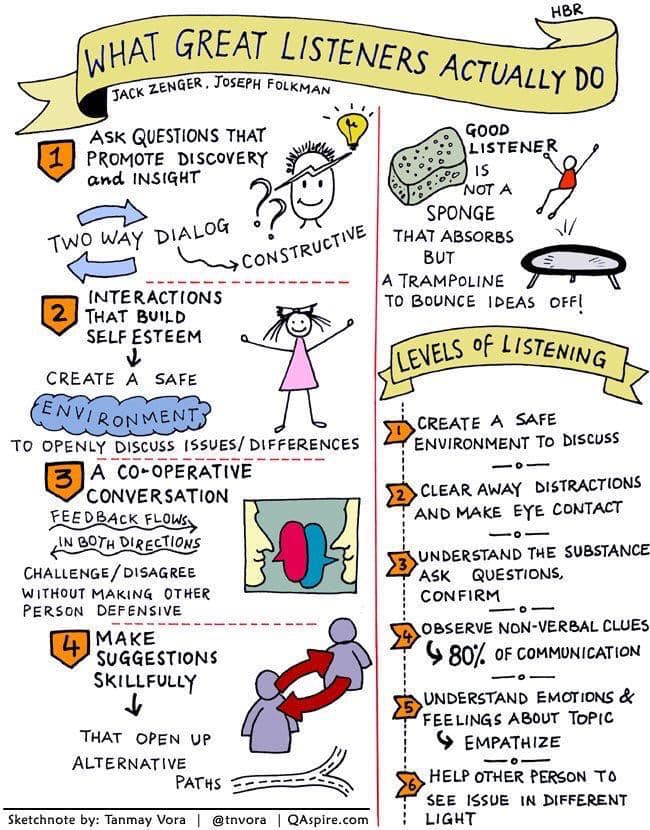Jan, 11, 2021
Listening is the communication skill we use the most Many people listen poorly, and they rarely think to improve this important skill.Poor listeners "hear" what's being said, but they rarely "listen" to the whole message. They get distracted -thoughts or by what's going on around them. Chances are you think you’re a good listener. People’s appraisal of their listening ability is muchlike ,as their assignment of listening skill, in that the great bulk of adults think they’re above average.in our experience, most people think good listening comes down to doing three things: Not talking when others are speaking Letting others know you’re listening through facial expressions and verbal sounds . Being able to repeat what others have said, practically word-for-word Good listening is much more than being silent while the other person talks.Good listeners enjoy better relationships, because they fully understand what other people are saying. Their team members are also more productive Before you have an important conversation, remove anything that may distract you from it,If you know that you won't be able to offer the other person your full attention – for example, if you're working onan urgent task – schedule a better time to speak. However, make sure that the other person knows that the conversation is important to you Use open body language and friendly Tone Interaction that build selfesteem-The best listeners made theconversation a positive experience for the other party, which doesn’t happen when the listener is passive (or, for that matter, critical!). Good listeners made the other person feel supported and conveyed confidence in them. Good listening was characterized by the creation of a safe environment in which issues and differences could be discussed openly. Good listening was seen as a cooperative conversation. In these interactions, feedback flowed smoothly in both directions with neither party becoming defensive about comments the other made.By contrast, poor listeners were seen as competitive — as listening only to identify errors in reasoning or logic, using their silence as a chance to prepare their next response. That might make you an excellent debater, but it doesn’t make you a good listener. Good listeners may challenge assumptions and disagree, but the person being listened to feels the listener is trying to help, not wanting to win an argument.End of all Empathic Listening When you demonstrate-Empathy-put yourself "in other people's shoes-Ask open questions-help people articulate Enjoy the moment of silence #jyotidadlani#Psychological #counsellor, #Trainer #ParentingExpert #cerebrovoationlplanet

comments (00)